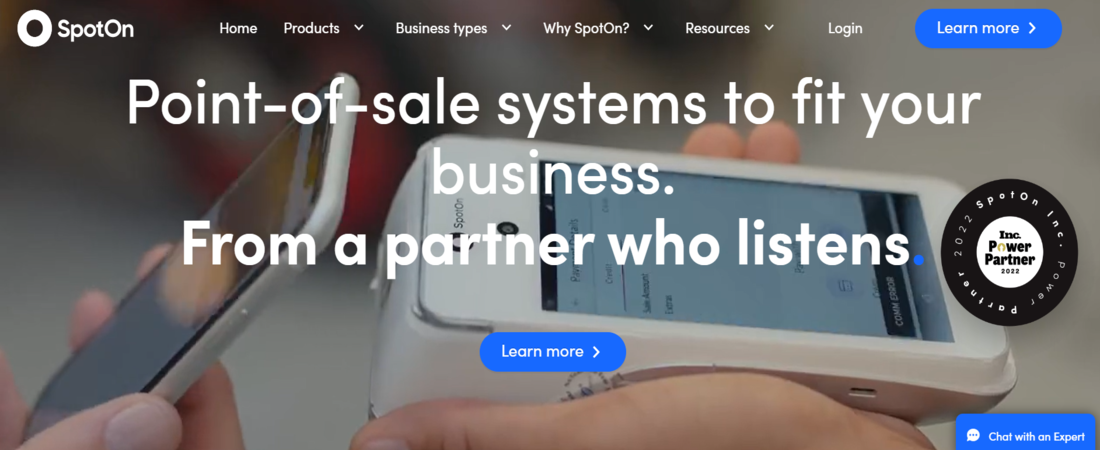TechRadar Verdict
SpotOn is a good choice for businesses that want a fully customized point-of-sale system. It has a lot of features but is pretty expensive, especially with the add-ons.
Pros
- +
User-friendly interface
- +
Great customer support
- +
No long-term contracts needed
- +
Extensive customization
- +
No long term commitment
- +
Pay monthly
Cons
- -
Customizations and add-ons can get expensive
- -
Watch for hidden fees
Why you can trust TechRadar
SpotOn is a POS system designed for restaurants, food trucks, clubs, or basically any hospitality-related business. General retailers can also use it to accept payments from customers with ease. This system offers more than just point-of-sale tools. Customers can also use it to gather insights about their business and know where to make improvements.
A unique thing about SpotOn is that it’s very customizable. Customers can make significant changes to many aspects of the software to match their brand. It’s also flexible such that it works for many types of businesses.
SpotOn, the company, is based out of San Francisco, California. It was founded in 2017 by three entrepreneurs; Doron Friedman, Matt Hyman, and Zach Hyman.
SpotOn POS: Plans and pricing
SpotOn’s pricing is a little opaque compared to other competitors. You must pay a one-time setup fee plus a recurring monthly fee to use the software. Your monthly fee depends on the features and add-ons that you select, and it starts at $25 per month.
The cost of using SpotOn includes:
- $25 per month for the software (including payment processing)
- $195 per month for the software alone (without payment processing)
Sign up to the TechRadar Pro newsletter to get all the top news, opinion, features and guidance your business needs to succeed!
- $65 per month for every extra restaurant
- $65 per month for a customer loyalty software add-on
- $65 per month for a website add-on
What you should note is that SpotOn does not have rigid pricing, so you’ll have to contact the company’s sales team directly, tell them what you want, and get a quote. The prices we listed above are the standard ones, but you may get discounts depending on your situation.
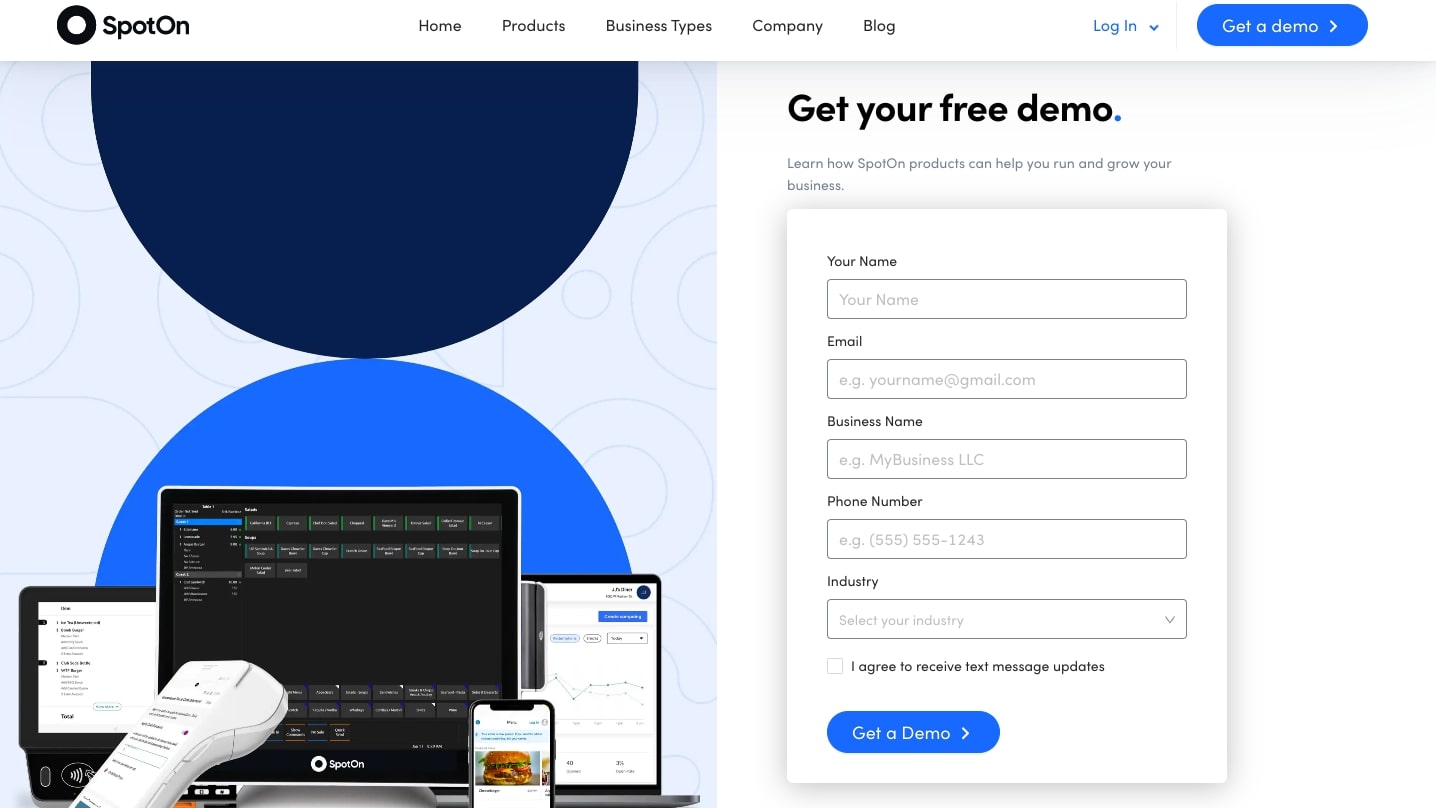
Let’s say, you only need the SpotOn software but want to use your own payment processor, then you’ll have to pay $195 per month. If you need both the SpotOn software and the company’s payment processor, then the price comes down to $25 per month. If you need the solution in multiple restaurants, then you’ll have to pay an extra $65 per month for each restaurant. If you want a tool to set up customer loyalty discount programs for regular customers, that’ll run you another $65 per month.
There are many add-ons to choose from, and they all come with extra costs. Thus, SpotOn can be pretty expensive if you request many add-ons.
Of course, SpotOn also takes commissions on every transaction facilitated by its payment processing system. The fee is 1.99% + $0.25 for regular transactions and 2.99% + $0.25 for AMEX, corporate, international, and keycard transactions. The 1.99% rate for typical transactions is pretty low, but the $0.25 flat charge on every transaction is quite pricey, especially if you sell low-cost items.
The one-time setup fee is usually $250, but it may vary depending on your requirements.
| Header Cell - Column 0 | Standard credit and debit cards | Corporate, International and American Express | Custom processing rate programme |
|---|---|---|---|
| Payment processing fee % | 1.99% | 2.99% | Custom pricing provided by SpotOn |
| Payment processing fee cost | $0.20 | $0.20 | Custom pricing provided by SpotOn |
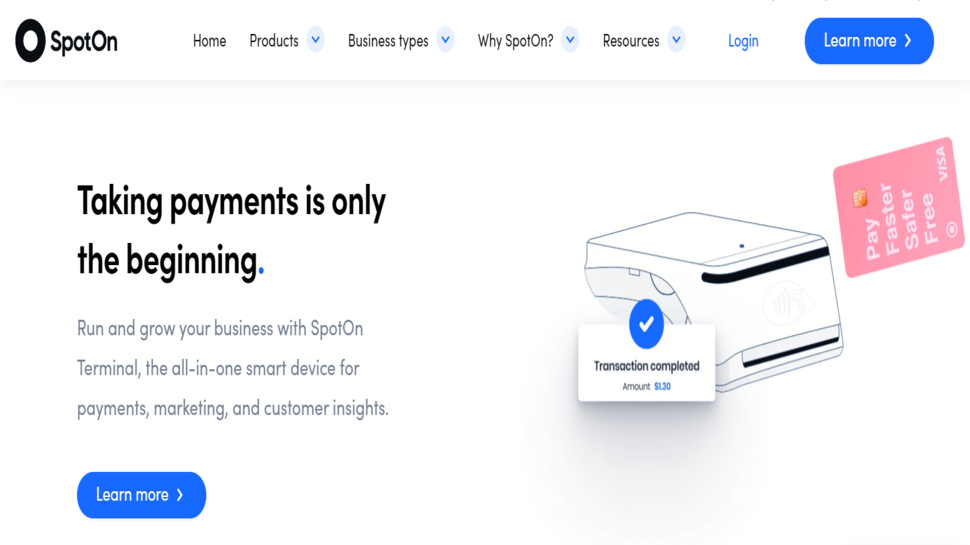
SpotOn POS: Features
Hardware
SpotOn offers different hardware that enables you to collect payments from your customers, including:
SpotOn Terminal: This is an all-in-one smart device that lets you accept payments from customers' cards. Customers can swipe, insert, or tap their cards, and it'll automatically print a receipt after charging them. It also works with digital wallets such as Apple Pay and Google Pay. All the payments are collated and wired to your bank account the next day.
Virtual Terminal: This is a compact card reader that works in tune with the SpotOn mobile app. With this device, you can collect payments from customers’ cards just as you’ll do with the SpotOn Terminal (swipe, insert, or tap), but your smartphone acts as the screen where you’ll confirm the payment.
Register: The SpotOn Register is a point-of-sale device that’s designed for retailers (e.g., convenience stores and supermarkets). It has a large screen that makes it easy to manage your catalog and sort the products available in your store. You’ll need to pair it with the SpotOn Terminal or Virtual Terminal to collect payments.
SpotOn continues to be an invaluable technology partner that listens well and proactively presents solutions to drive our business forward.
Kevin Youkilis
Payment Processing
Point-of-sale hardware can not work alone. It works in tune with SpotOn’s software which recognizes customers’ cards and collects payments from them. The pricing is transparent, although we observed some (unconfirmed) complaints of customers complaining of hidden fees. It does not just stop at receiving payments; you can also generate insights from your transaction data that help you know where to improve your store.
Reservation
SpotOn also offers software that lets restaurants, bars, hotels, etc., take reservations from customers. Customers can add themselves to the reservation waitlist directly from your website or Google profile page, and you can send wait times automatically. You can notify guests when their reserved table is ready via text message, and they can respond accordingly.
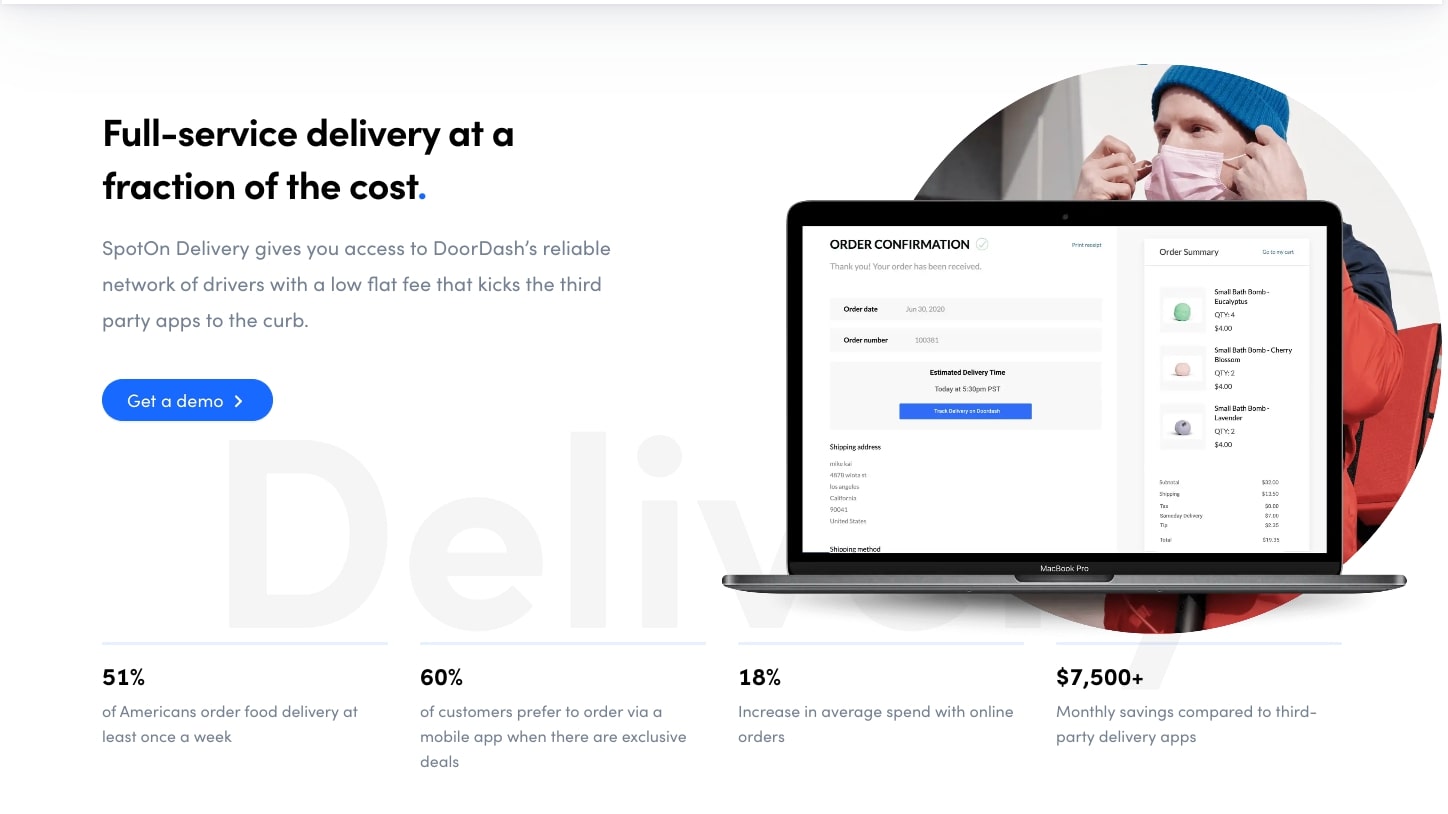
SpotOn POS: Interface and in use
SpotOn has a modern, intuitive interface that you’ll likely find easy to navigate. It’s designed in a way that makes it easy to find and switch between different features. If user-friendliness was the only criterion for this review, SpotOn will get a perfect score.
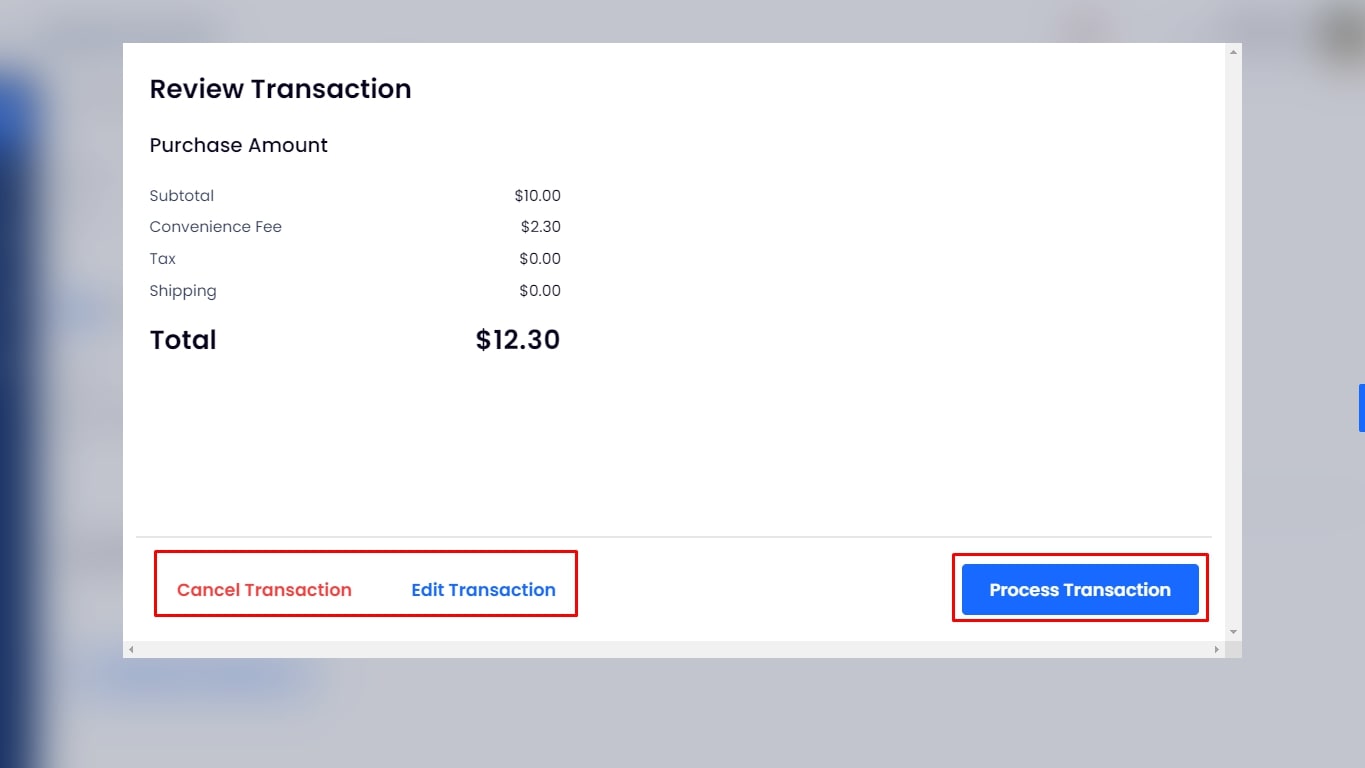
SpotOn POS: Support
If you experience a problem with SpotOn, the first place to visit is the Knowledge Base, which contains articles, guides, and tutorials concerning all aspects of the platform. If that does not suit you, then you're free to contact SpotOn's support staff via email or telephone. There are dedicated email addresses and telephone numbers to contact depending on your inquiry. Support is available 24 hours a day, 7 days a week.
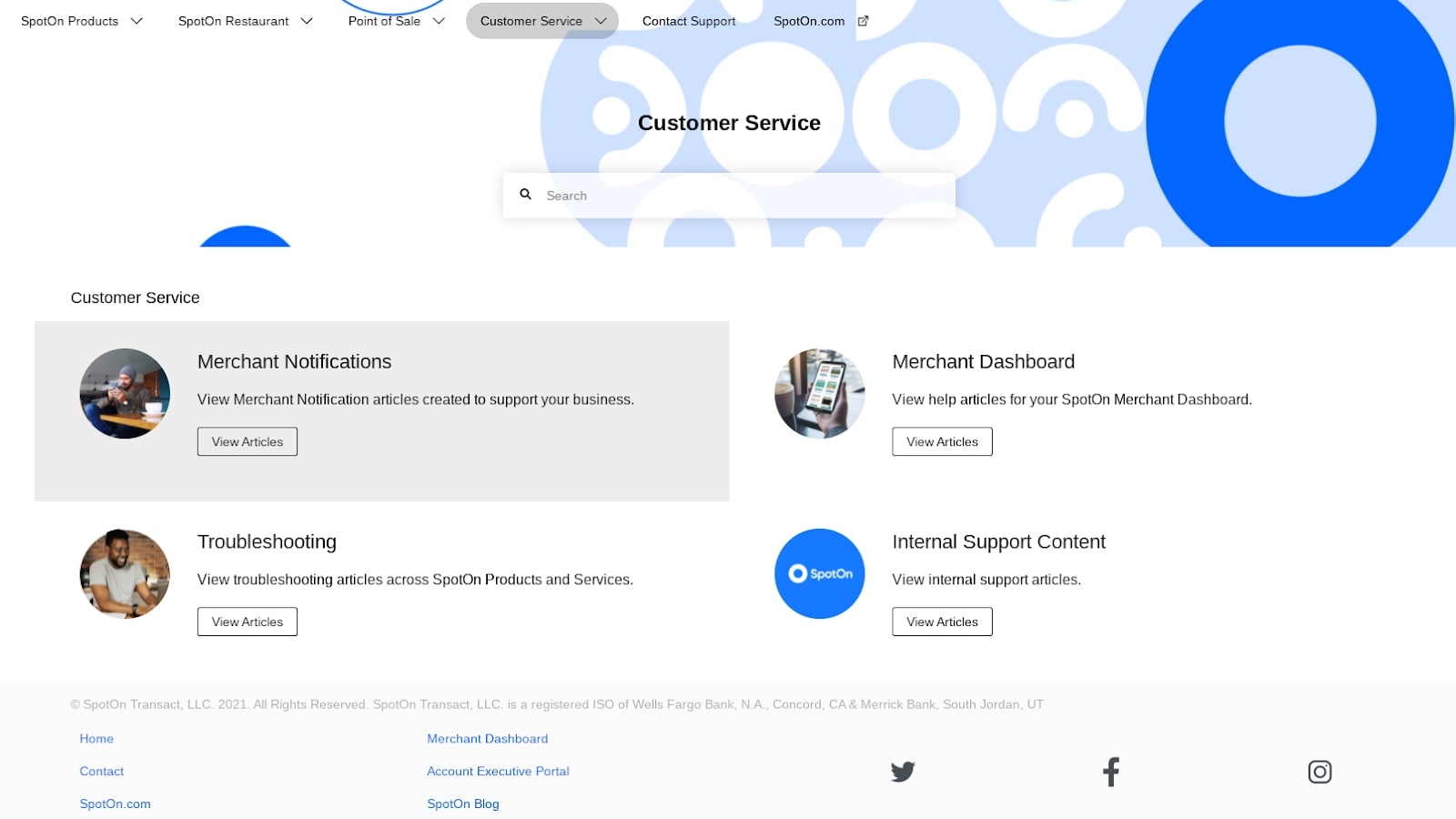
SpotOn POS: The competition
Toast POS is the most notable competitor to SpotOn because it is also designed for hospitality businesses. Toast is pretty expensive just like SpotOn and has even higher transaction fees. It has an intuitive interface just like SpotOn and is a suitable alternative to the platform.

SpotOn POS: Final verdict
SpotOn is an ideal point-of-sale system for hospitality-related businesses. General retailers can also adopt it as a point-of-sale solution. It’s an intuitive tool that lets you accept payments with ease but is, however, pretty expensive.
We've listed the best POS systems for retail.
Stefan has always been a lover of tech. He graduated with an MSc in geological engineering but soon discovered he had a knack for writing instead. So he decided to combine his newfound and life-long passions to become a technology writer. As a freelance content writer, Stefan can break down complex technological topics, making them easily digestible for the lay audience.
